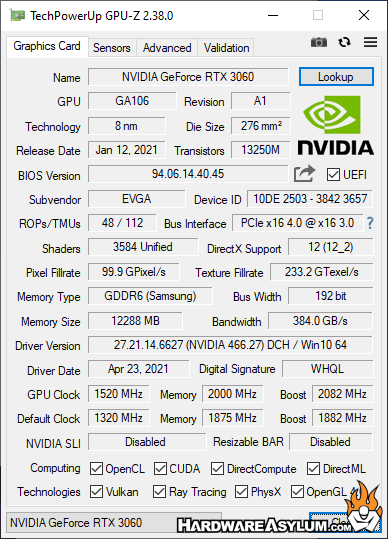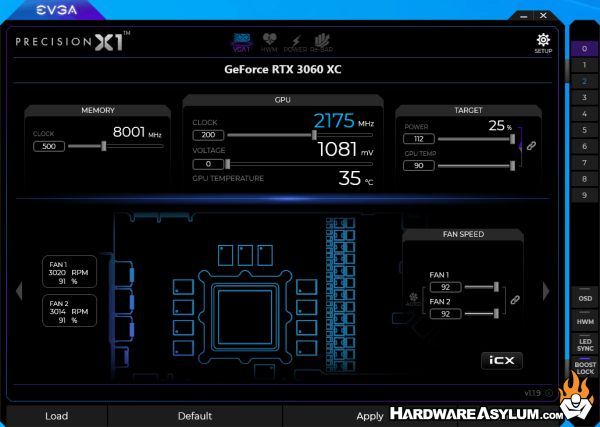EVGA RTX 3060 XC Gaming Video Card Review
Author: Dennis GarciaOverclocking the EVGA RTX 3060 XC Gaming
As with most modern silicon the more advanced something gets the less headroom you have for overclocking. This is compounded by factory overclocks consuming what little there is. Or in the case of the RTX Ampere you have the built in Boost to contend with that keeps clocking the card until it runs out of power or starts running too hot.
The effective overclock for this card sample is +200 on the core and +500 on memory. This works out to be around 2176Mhz Core and 8000Mhz (effective) on the memory clock (divide it by 4 to get the real clock, aka 2000Mhz). Back in the days of Pascal if you could get close to 2000Mhz core you had a rocking video card. It would seem the same is true for 20-Series and 30-Series given that anything past our +200 overclock would fail rather quickly.






I’m rather conflicted when it comes to overclocking RTX cards. On one side it is great to be able to push these cards to the limit and see just how much performance they can deliver. Now, to get the card to run this fast I tweaked the fans to run around 70% just to ensure I didn’t hit the thermal limit. Not only did this make the card noisy but adds to the steps required to make the card run fast.
Now, contrast that with the hot-clock provided by EVGA combined with the normal NVIDIA Boost you get with every RTX card and there is virtually NO reason to overclock. Out of box performance is excellent and overclocked performance is kinda “Meh”. Sure we got better scores but, still didn't match the 2080 Super.

